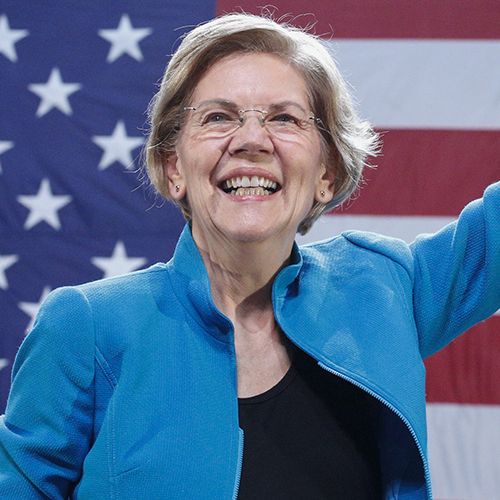Senator Elizabeth Warren (D-Mass.) has once again voiced her concerns about the cryptocurrency industry, this time focusing on the potential national security risks posed by foreign-owned crypto mining operations in the United States. At a Senate Committee on Banking, Housing, and Urban Affairs hearing, Senator Elizabeth Warren emphasized the risks posed by these operations, including espionage and financial secrecy, and urged the adoption of more robust legislative measures to tackle these urgent issues.
Senator Elizabeth Warren’s National Security Risk Concerns
During her questioning of Paul Rosen, Assistant Secretary for Investment Security at the Department of the Treasury, Senator Elizabeth Warren identified several significant threats linked to foreign-owned crypto mining operations. She emphasized that these operations could be exploited for spying on military installations, disrupting the power grid, and facilitating covert financial transactions. “Adversaries could exploit crypto mines to spy on military bases, disrupt the power grid, or secretly transfer money in and out of the country,” Warren stated. Her concerns reflect a growing apprehension about how foreign entities might exploit the expansive and largely unregulated crypto mining industry.
Foreign Ownership Concerns
A major concern for Senator Elizabeth Warren is the level of foreign ownership within the U.S. crypto mining industry. She cited a blockchain analytics firm’s report indicating that approximately one-third of U.S.-based crypto mining operations are owned by Chinese citizens, some with direct ties to the Chinese government. This statistic raises serious red flags about the potential influence and control those foreign entities, particularly those from China, could exert over critical infrastructure and economic activities in the United States. The senator argues that such foreign involvement could pose significant risks to national security and the integrity of key infrastructure.
Recent Case Study
Senator Elizabeth Warren referenced a recent high-profile case where President Joe Biden intervened to block a China-majority-owned mining company from operating near a Wyoming Air Force base due to national security concerns. This decision highlights the real and present dangers that foreign-controlled entities could pose if allowed to operate in close proximity to sensitive sites. The case illustrates the potential for foreign entities to leverage crypto mining operations for strategic advantages, highlighting the urgent need for regulatory measures to prevent such risks.
Call for Stronger Legislation
Warren’s remarks serve as a call to action for stronger legislative frameworks to address these risks. She argues that existing regulations are insufficient to manage the complexities and potential threats posed by the crypto mining industry. “It is time for us to pass laws—laws that the Treasury needs,” Senator Elizabeth Warren said, urging her colleagues in Congress to take a proactive stance in safeguarding national security. Her call for enhanced legislation aims to create a more robust regulatory environment that can effectively mitigate the risks associated with foreign ownership and operation of crypto mining facilities.
Anti-Crypto Stance
This latest critique is consistent with Senator Elizabeth Warren’s broader skepticism of the cryptocurrency industry. Recognized for her critical stance on the sector, she has been a vocal proponent of enhanced regulation and stronger consumer protections. In her re-election campaign, Warren has been actively assembling what she calls an “anti-crypto army,” a coalition focused on tackling the perceived excesses and risks of the cryptocurrency market. Her efforts reflect a broader political and regulatory push to impose stricter oversight on the rapidly growing and evolving cryptocurrency industry.
Political Ramifications
Senator Elizabeth Warren’s strong stance has sparked controversy and drawn criticism from crypto advocates. One notable critic, pro-crypto lawyer John Deaton, has announced his intention to challenge Warren in the upcoming Senate race. Deaton and others argue that Warren’s position stifles innovation and overlooks the potential benefits of cryptocurrency and blockchain technology. This political clash highlights the growing divide between proponents of cryptocurrency and those advocating for more stringent regulatory measures.
Industry Response
The debate over cryptocurrency, national security, and regulation is far from settled. Industry experts, policymakers, and investors continue to grapple with these issues. The upcoming Benzinga Future of Digital Assets event on November 19 will offer a venue for stakeholders to explore how these developments might impact the future of cryptocurrency and blockchain technology in the United States. This event will provide a platform for discussing the implications of regulatory changes and the evolving landscape of the crypto industry.
Balancing Innovation and Security
The core challenge lies in finding a balance between fostering innovation and ensuring national security. Cryptocurrency and blockchain technology hold significant potential for transforming financial systems, enhancing transparency, and fostering economic growth. However, the unregulated or poorly regulated expansion of this industry could introduce vulnerabilities that adversaries might exploit. Senator Elizabeth Warren’s concerns highlight the need for a regulatory framework that both supports technological advancement and addresses national security risks.


